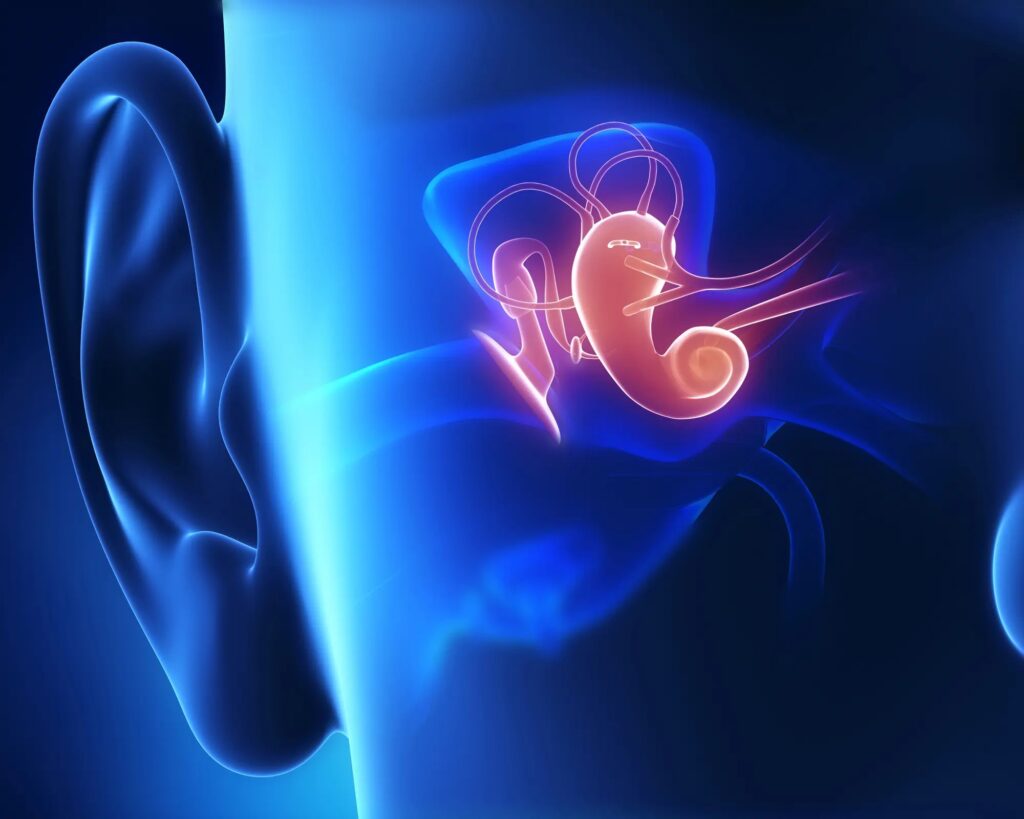
By: Dr. Keith Darrow, PhD, CCC-A
Tinnitus is a condition affecting nearly 73 million Americans and approximately 1.5 billion individuals globally. It presents unique challenges that can significantly impact one's quality of life. Excellence in Audiology member-clinics have made it our mission to explore effective strategies and techniques that you can incorporate into your daily routine to mitigate the effects of tinnitus. By understanding and addressing this condition, we aim to empower you to lead a more fulfilling life with less tinnitus. Specialized care is crucial for effective management, and choosing the right audiologist with expertise in tinnitus can significantly impact your treatment outcomes and quality of life. Living with tinnitus is a journey that requires both medical treatment and personal empowerment.
Take your first step towards living with less tinnitus by visiting www.excellenceinaudiology.org and find your local Tinnitus Certified Specialist.
Here are key indicators to help you identify if your audiologist is a tinnitus specialist:
1. Specialized Training and Credentials
- Certification: Look for certifications specifically in tinnitus management or related fields. Audiologists with specialized training often hold certifications from organizations like the American Tinnitus Association (ATA) or the Tinnitus Practitioners Association (TPA).
- Continuing Education: A commitment to ongoing education in tinnitus treatment methods and research is a positive sign. Ask about recent training or workshops attended.
2. Comprehensive Assessment and Diagnosis
- Thorough Evaluation: A tinnitus specialist will conduct detailed assessments to understand the nature and impact of your tinnitus. This includes comprehensive hearing tests and evaluations of medical history and lifestyle factors.
- Diagnostic Precision: Specialists use validated tools and protocols to diagnose tinnitus severity and its underlying causes accurately.
3. Personalized Treatment Plans
- Tailored Approach: Treatment plans should be customized to your unique tinnitus profile, considering factors like sound therapy, counseling, and possible medical interventions.
- Patient-Centered Care: Specialists prioritize your needs, preferences, and treatment goals throughout the process.
4. Collaborative and Holistic Care
- Multidisciplinary Approach: Coordination with other healthcare providers, such as ENT specialists or psychologists, indicates a commitment to holistic care.
- Support Networks: Connections with tinnitus support groups or community resources demonstrate a proactive approach to patient support beyond clinical settings.
5. Research and Innovation
- Awareness of Latest Advancements: A tinnitus specialist stays informed about cutting-edge research and treatment innovations. They may participate in clinical trials or contribute to professional publications.
6. Patient Education and Empowerment
- Clear Communication: Specialists explain tinnitus concepts and treatment options in a way that empowers you to make informed decisions.
- Educational Resources: Access to educational materials or workshops on tinnitus management reflects a commitment to patient education.
7. Positive Patient Feedback
- Reviews and Testimonials: Seek feedback from other patients about their experiences with the audiologist. Positive testimonials often highlight effective communication, compassion, and successful outcomes.
Identifying a tinnitus specialist audiologist involves assessing their credentials, approach to diagnosis and treatment, commitment to ongoing education, and patient-centered care philosophy. By choosing a specialist who aligns with these criteria, you enhance your chances of receiving effective and compassionate care for managing tinnitus.
So, why is this important? Afterall, according to the internet, you might be able to just take a magic pill, stand on your head for 3 minutes, or press warm bread up against your ears. Or you can find a medical professional to use evidence-based science to effectively reduce your tinnitus.
Here are a few more clues to select a great tinnitus specialist:
- He or she has a busy practice. When you see a really, really, busy practice there are probably a whole lot of patient referrals. Let’s face it - nobody enthusiastically refers if they feel they were lied to or treated badly, sold something they did not need.
- The other clue: the treatment for your tinnitus is not cheap. The fees for our tinnitus treatment program are calculated to allow for “Cadillac + Care” in every respect. From the detailed seven step cognitive screening and diagnostic process to the proven tinnitus treatment program we have developed, we will never compromise on your treatment. If I were you, I would worry if I could find a specialist that is a lot cheaper anywhere else. If you do find one, know this: behind closed doors they are probably asking, “can we do this cheaper?”. Is that the question you want discussed by your care team at every step of your treatment process? There is both a science and art to treating tinnitus. Our healthcare team of specialists are all highly trained to produce state-of-the-art outcomes, nothing less. The specialist truly makes a difference.
Always remember that tools have never created the skill. They’re simply a conduit teamed with education, talent, experience, and knowledge. The tools used to treat tinnitus have never made the specialist, but when the best tools are in the hands of the best specialists, magic happens.
All hearing healthcare specialists that treat tinnitus should be licensed by the state and have become Certified Tinnitus Specialists.
An audiologist who specializes in tinnitus care must be thoroughly trained and tested to demonstrate their knowledge of the auditory system, clinical skills, and judgment.
It might seem strange and go against everything you were taught in preschool, but we don’t ‘hear’ with our ears. The ears are just a receptor of sound, which is then transferred to our auditory nerve, and finally into our brain, where the speech understanding and cognitive process of deciphering sounds into words takes place. And the brain is where your tinnitus is.
As a neuroscientist who has worked in the lab for decades and seen up close how the system works, this comes naturally to me, but to many hearing specialists without formal training or membership in a community like the Excellence In Audiology network, it is often overlooked.
Words like dementia, cognitive decline, cognitive overload, progressive degenerative disorders, and auditory system damage might seem scary, but rest assured a hearing specialist and his/her team who thinks ‘Brain Health First’ will undoubtedly be using these words when discussing your hearing and tinnitus symptoms with you. If your specialist is not using these words, or is focused on things like lifestyle charts, Bluetooth, rechargeable batteries and TV adapters, you will know they are thinking ‘hearing aids first’ and not ‘Brain Health First’.
Be sure that your audiology office provides you with pre-appointment education, that they are using science-based testing and state-of-the-art prescriptive treatment technology. Oh, and ask for a direct phone number for 24/7 support or questions! Make sure they make you feel special and comfortable and that they have a great reputation.
Remember, your audiologist should be a trusted partner in your journey towards tinnitus relief, offering support and expertise every step of the way.




















